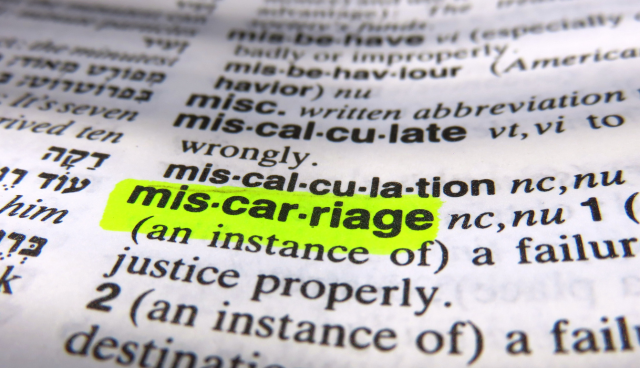
Miscarriage: Causes, Symptoms, and Diagnosis
Understanding Miscarriage
Causes of Miscarriage
Miscarriages can result from various factors, and sometimes the exact cause remains unknown. Here are some of the known causes of miscarriage:
- Chromosomal Abnormalities: The most common cause of miscarriage, chromosomal abnormalities occur when there are genetic errors in the developing embryo. These errors can prevent the pregnancy from progressing normally.
- Hormonal Imbalances: Hormonal imbalances, such as insufficient levels of progesterone, can interfere with the development of the uterine lining, making it difficult for the embryo to implant and thrive.
- Uterine Abnormalities: Structural issues with the uterus, such as fibroids or a septum, can increase the risk of miscarriage by interfering with the implantation of the embryo.
- Infections: Infections in the reproductive tract, like chlamydia or gonorrhea, can lead to miscarriage if left untreated.
- Chronic Illnesses: Chronic conditions like diabetes, lupus, and thyroid disorders can increase the risk of miscarriage if not well-managed during pregnancy.
- Lifestyle Factors: Unhealthy habits like smoking, excessive alcohol consumption, drug use, and a poor diet can contribute to miscarriage risk.
- Advanced Maternal Age: As women age, the likelihood of miscarriage increases, with the risk rising notably after the age of 35.
- Trauma: Physical trauma or injuries during pregnancy can lead to miscarriage, though this is relatively rare.
Miscarriage Symptoms
Miscarriage symptoms can vary, but some common signs to watch for include:
- Bleeding: Vaginal bleeding is often the first sign of a miscarriage. It can range from light spotting to heavy bleeding, resembling a menstrual period.
- Cramping: Mild to severe abdominal cramping may accompany bleeding. This discomfort can be similar to menstrual cramps.
- Tissue Passing: You may pass clots or tissue from the vagina, which can be a distressing sign of miscarriage.
- Back Pain: Some women experience lower back pain during a miscarriage.
- Loss of Pregnancy Symptoms: If you were experiencing pregnancy symptoms like breast tenderness or morning sickness, these symptoms may diminish or disappear completely.
- Reduced Movement: In later stages of pregnancy, a lack of fetal movement can be indicative of a miscarriage.
It’s important to note that some women experience no symptoms at all, especially in the case of a missed miscarriage.
Early Miscarriage Symptoms
Diagnosing Miscarriage
To diagnose a miscarriage, healthcare providers may use a combination of methods. These methods can include:
- Ultrasound: Transvaginal ultrasound is one of the most common methods used to diagnose a miscarriage. It can visualize the pregnancy and identify if the embryo has a heartbeat.
- Blood Tests: A series of blood tests may be performed to monitor the levels of hCG (human chorionic gonadotropin) in your blood. A significant drop in hCG levels can indicate a miscarriage.
- Pelvic Exam: Your doctor may perform a pelvic exam to check the condition of the cervix and uterus, especially if you are experiencing vaginal bleeding.
- Tissue Analysis: If a miscarriage has occurred, any tissue or clots passed during the process may be sent to a laboratory for analysis.
Missed Miscarriage
A missed miscarriage, also known as a silent miscarriage, occurs when the embryo has stopped developing, but the body has not yet expelled the pregnancy. This type of miscarriage can be emotionally challenging because you may not experience the typical miscarriage symptoms like bleeding and cramping. Instead, the lack of pregnancy symptoms, as observed through ultrasound, can indicate a missed miscarriage.
Treatment and Coping
If a miscarriage is confirmed, your healthcare provider will discuss treatment options with you. The appropriate treatment depends on several factors, including the gestational age, your health, and your emotional readiness. The following are some coping mechanisms and therapy options:
- Expectant Management: In some cases, the body naturally expels the pregnancy without medical intervention. Your healthcare provider will monitor your condition to ensure it’s progressing safely.

- Medication: Medications like misoprostol may be prescribed to help your body expel the pregnancy if it hasn’t occurred naturally.
- Dilation and Curettage (D&C): This surgical procedure involves the removal of pregnancy tissue from the uterus and is often performed when other methods are not suitable.
- Emotional Support: Coping with the loss of a pregnancy can be incredibly challenging. Seek support from friends, family, or a mental health professional to help you navigate the emotional journey.
Physical Recovery: Be sure to take care of your physical health during recovery by following your healthcare provider’s recommendations. Rest and self-care are essential.

